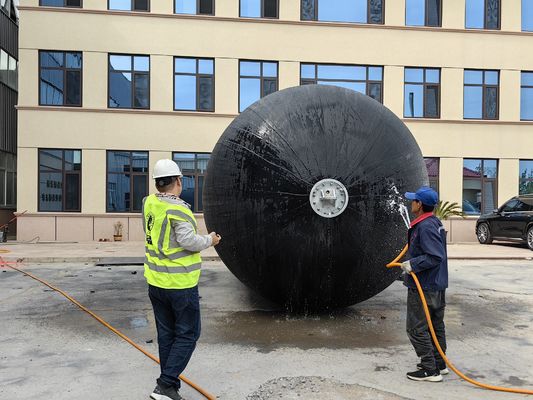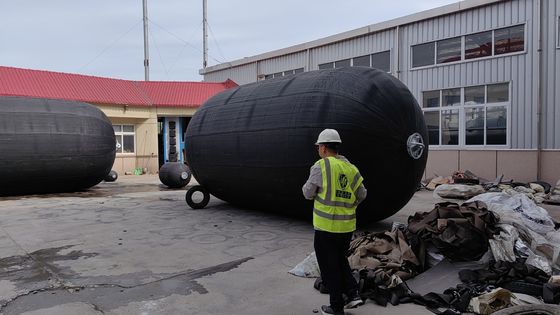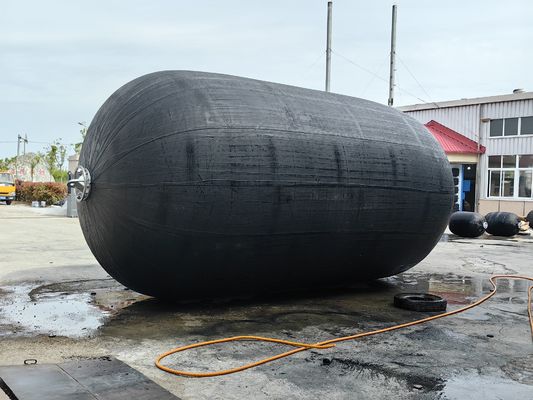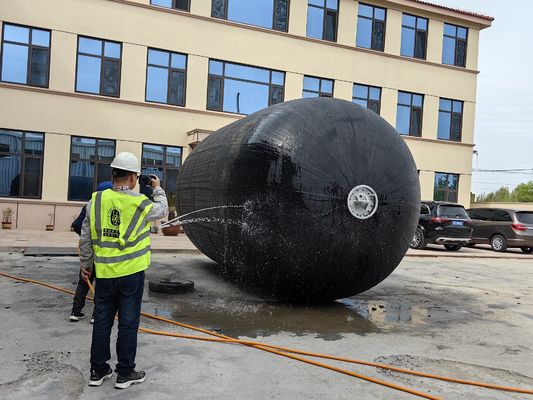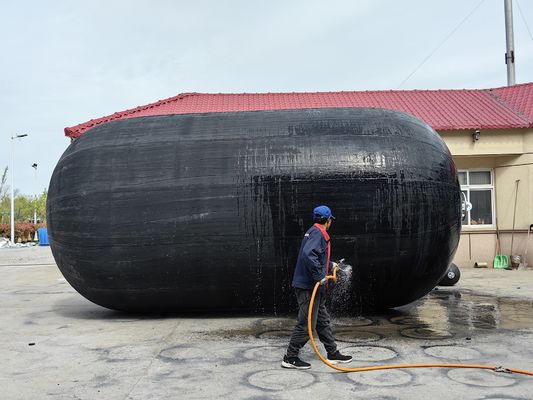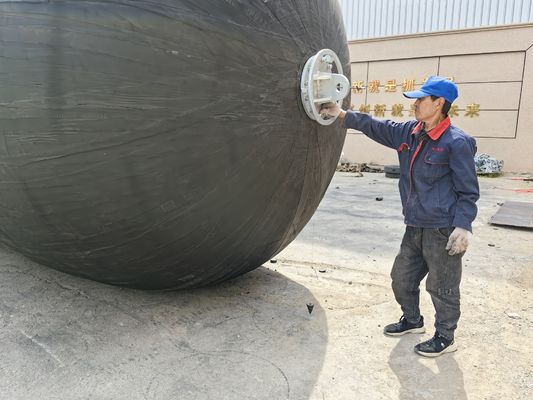Product Description
Pneumatic Rubber Fender Introduction
Pneumatic rubber fender (by ball) is a marine anti-collision product made of compressed air. Compressed air is mainly used as the buffer medium to absorb the impact energy of the ship, making the ship more flexible and soft when docking, so as to achieve the effect of collision and collision avoidance. Yokohama type ball is a kind of sheath type ball. Usually aircraft tires or engineering tires are used to wrap the ball. Both ends are equipped with shoulder straps, which are widely used for ship-to-ship transfer operations and ship berthing operations. Wait. The size is: D0.5m x L1.0m ~ D4.8m x L12m. Inflatable fenders (by ball) are produced in strict accordance with ISO17357-2002 and GB/T 21482-2002 international quality standards, and their products are exported to all over the world.

Pneumatic Rubber Fender Storage
1. When the Pneumatic rubber fender is not used for a long time, it should be washed and dried, filled with appropriate compressed air, placed in a dry, cool, ventilated place.Inventory temperature is maintained at -15 ℃ -40 ℃ .
2 .The place where the fender is stored should be kept away from the heat source.
3 .Fenders shall not be in contact with acids, alkalis, greases and organic solvents.
4 .When the fenders are not in use, they must not be stacked and should not be stacked on the ba. In order to better extend the service life of pneumatic rubber fenders, it is recommended that you store them in strict accordance with the above recommendations.

Pneumatic Rubber Fender Features
1. Safety and Reliability
Yokohama Pneumatic Rubber Fenders are constructed of several layers of strong tire-cord, and are thus resistant to pressure and cutting. The safety factor adopted in the design of this fender is based on accepted theory and has been proven by extensive experimentation. Operational experience over a long period of time attests to its high safety and reliability, and hydraulic pressure tests have proven the strength to be suitable.
2. No Deterioration or Variation in Performance
Yokohama Pneumatic Rubber Fenders utilize the compressive elasticity of air, therefore performance deterioration due to fatigue is absent. In the case of solid rubber fenders or foam-filled fenders, based on data were taken from comparison tests of Yokohama Fenders, there are variations in performance. Such performance variations are associated to changes of rubber or foam hardness occurring as a result of cyclic compression and temperature change. The good performance of the Yokohama Pneumatic Rubber Fenders remains unchanged even at temperatures under -50 degrees Centigrade (-58 degrees Fahrenheit).
3. Advantages at Inclined Berthing
Ships usually make initial contact with the dock or another ship on STS operations at an oblique angle. In the case of Yokohama Pneumatic Rubber Fenders, energy absorption does not decrease at inclined compression up to 15 degrees.
4. Most Cost Competitive System
The utilization of the compressive elasticity of air, unlike other fenders which need protector panels, provides completely uniform surface pressure on contact. The surface pressure is equal to the internal air pressure
5. Stronger against Shearing Force
After contacting a dock, a ship is usually shifted to the correct mooring position. The shifting exerts shearing and compression forces on the fenders. This combined force is very severe in the case of solid rubber fenders because they are not reinforced against such force. In contrast, Yokohama Pneumatic Rubber Fenders are adequately reinforced using strong tire-cord to cope against such forces as well as internal pressure.

Transportation:
We can take the deflation pallet transportation and the entire fender transportation without deflation according to the requirements of customers. We always put the customer's requirements first.


Contact information:
Angus Zhang
Tel: +86-15794525751
E-mail:angus@hengergroup.com


